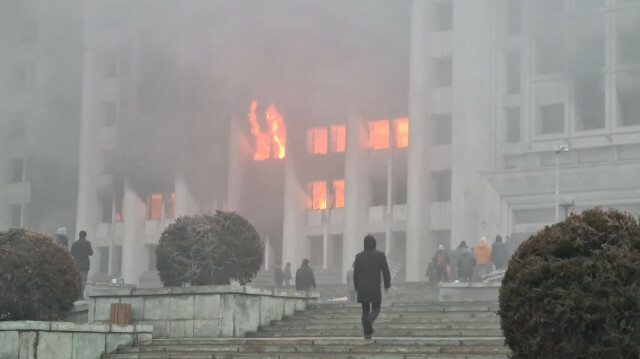
Trade disruptions, weak global demand for energy, and low growth has hit Kazakhstan economy hard
By Zaki Shaikh
The writer is a UK-based analyst and has worked with universities in three Central Asian countries.
The trade disruptions, weak global demand for energy and commodities have made a significant impact on the country’s economy.
The hardships made people think about the path which Kazakhstan has traversed since its independence in 1991. While some sectors of the economy have transformed remarkably, the progress has not benefited the country’s non-energy producing regions adequately.
The spread of the COVID-19 pandemic in early 2020 contributed to enormous social and economic upheaval as commodity-driven growth paths pursued by the country did not allow pursuing the conventional cyclical pattern.
The growth rates were estimated to stay as low as 2.5% in 2021 and 3.5% in 2022 while inflation rocketed above 7%. The World Bank experts have predicted that poverty and inequality could grow in the country due to the protracted coronavirus epidemic. Shrinking of growth not only led to erasing of per capita income gains but caused a reversal in plans to reduce poverty levels. As many as 26% women and 22% men reported job losses, according to Amelie Schurich-Rey, an analyst.
The rating analyst Anton Tabach has calculated that the rating indicators related to financial stability are showing a downward trend in the country. He noted that during the 2012-20 period, revenue in the budget has declined from 27% to 17%. In contrast, the expenditure rose from 20- 25% of the GDP. In 2020 the public debt was 23.4% of the GDP. For nine months in 2020, while imports to the country decreased by 9.6%, the exports decreased by 18.2% compared to 2019, creating a balance of payment issue.
Kazakhstan imports machinery equipment, chemical products, metals, and products. Revenues from the sale of gas and oil, have decreased sharply due to falling prices for raw materials. Another rating analyst Anton Prokudin maintains that the average annual GDP growth under the baseline scenario will be around 4.8% between 2022-2026. In the baseline scenario, real GDP growth is projected at 3.9% in 2022.
-Oil revenue dependence
Further, as the revenues remain dependent on oil revenues, experts anticipate a deficit in the budget projections due to the slower market consolidation. The share of oil revenues in the structure of state budget revenues in 2020 was at 45%.
Besides the economic growth, the national currency of the country has also remained volatile, leaving it vulnerable to the shockwaves triggered by the pandemic.
As global inflationary pressures will persist in 2022, analysts point to an uneven recovery. Economic growth will remain above the pre-pandemic rate, which was 2.3% in 2019. The fiscal consolidation remained slow in the previous year, despite higher spending on health care, public utilities, and transportation. The high level of the shadow economy, estimated at 25% of GDP, and tax breaks also hit the revenue sector.
The non-oil deficit of the government budget in 2020 and 2021 had exceeded and is expected to exceed 10% of GDP, which is a negative factor and reduces the long-term sustainability of public finances.
Kazakhstan’s veteran economist Pyotr Svoik has said that the pumping of money into the domestic economy has its limits. He argued that such a step increases inflation.
-Risk of inflation
Kazakhstan remains under inflation risk due to the external balance of payments, which keeps growing with a negative balance due to both a high accumulated external debt and the high level of accumulated foreign investment, says Svoik.
He said the raw material export will not prove adequate to offset the outflow of currency from the balance of payments of Kazakhstan to service the accumulated external debt and for paying dividends to foreign investors.
Priority policy areas for a strong economic recovery will need advancing an ambitious reform agenda aimed at strengthening the foundations for a private sector-driven recovery, observes economist Luke Mackle.
He also recommends making essential improvements to the business climate, public revenue management, and enhancing the contribution of business intermediary organizations to help private-sector recovery.
*Opinions expressed in this article are the author's own and do not necessarily reflect the editorial policy of Anadolu Agency.
Hello, the comments you share on our site are a valuable resource for other users. Please respect other users and different opinions. Do not use rude, offensive, derogatory, or discriminatory language.
The floor is all yours.








